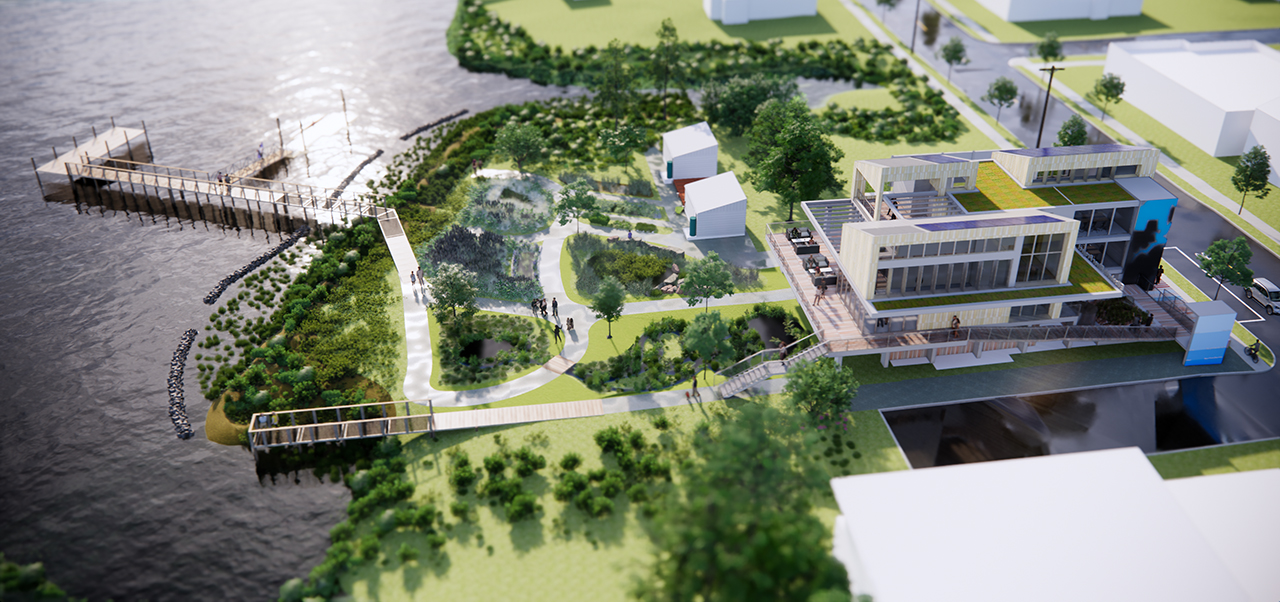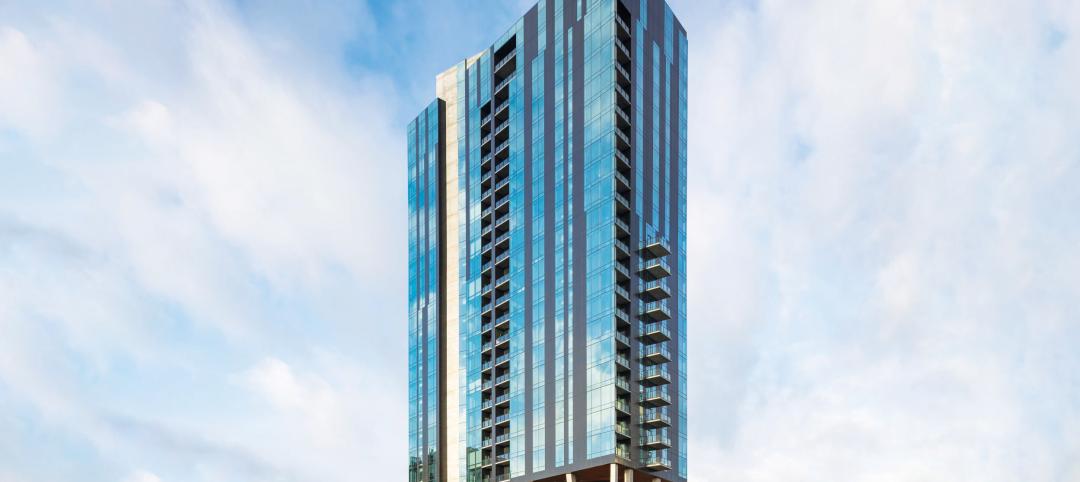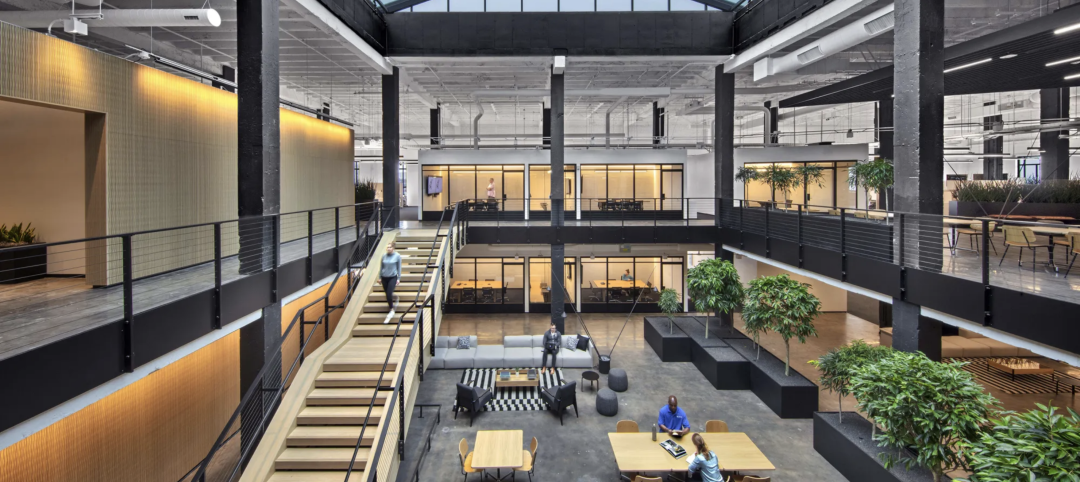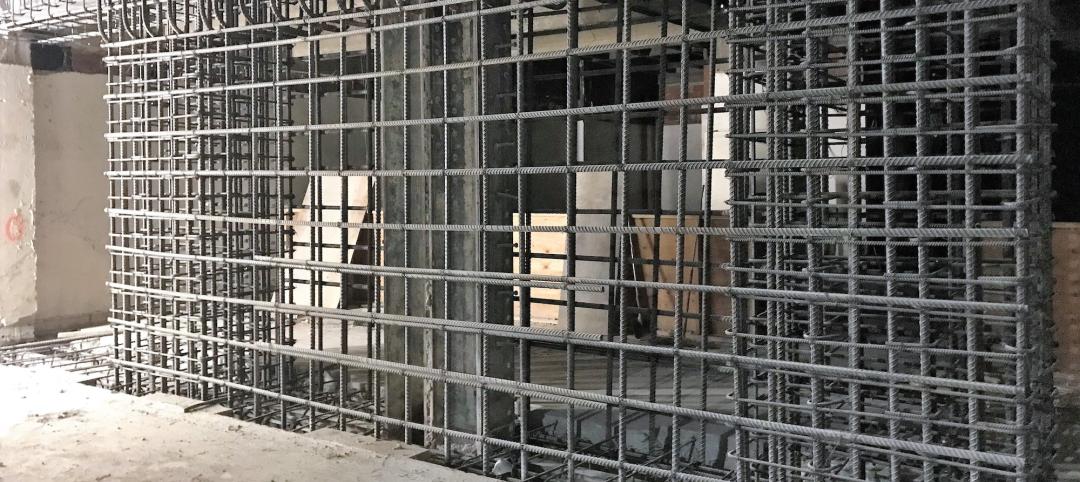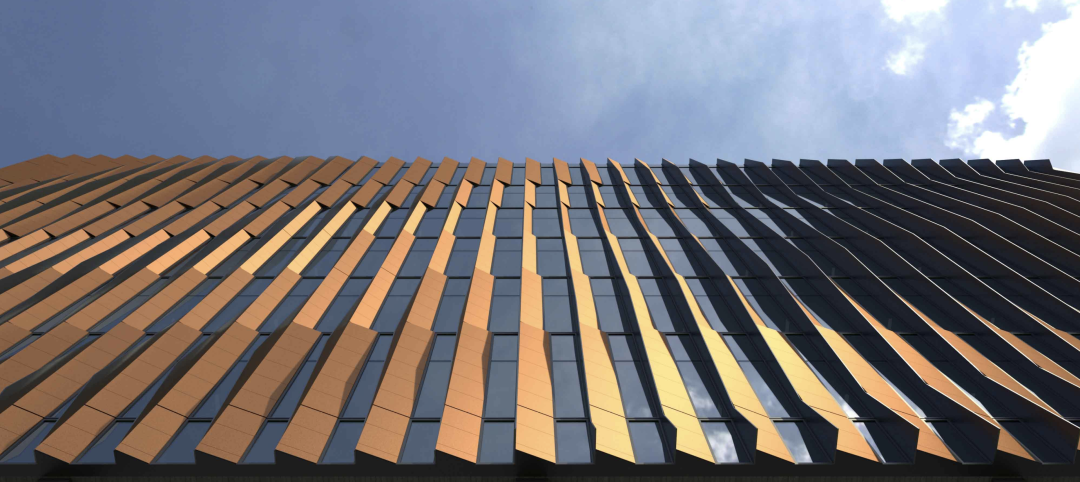Elizabeth River Project (ERP), a non-profit organization dedicated to the preservation and restoration of the Elizabeth River in Norfolk, Va., is working with Work Program Architects (WPA) to develop plans for a new Resilience Lab. The goal of the project is to demonstrate accessible, approachable methods of resilience and sustainability for homeowners, developers, or small business owners.
The 6,460-sf facility will be located on an urban site between Colley Avenue and Knitting Mill Creek. The water side will be redeveloped with a living shoreline and an expansive new educational park and dock that is open to the public for tours.
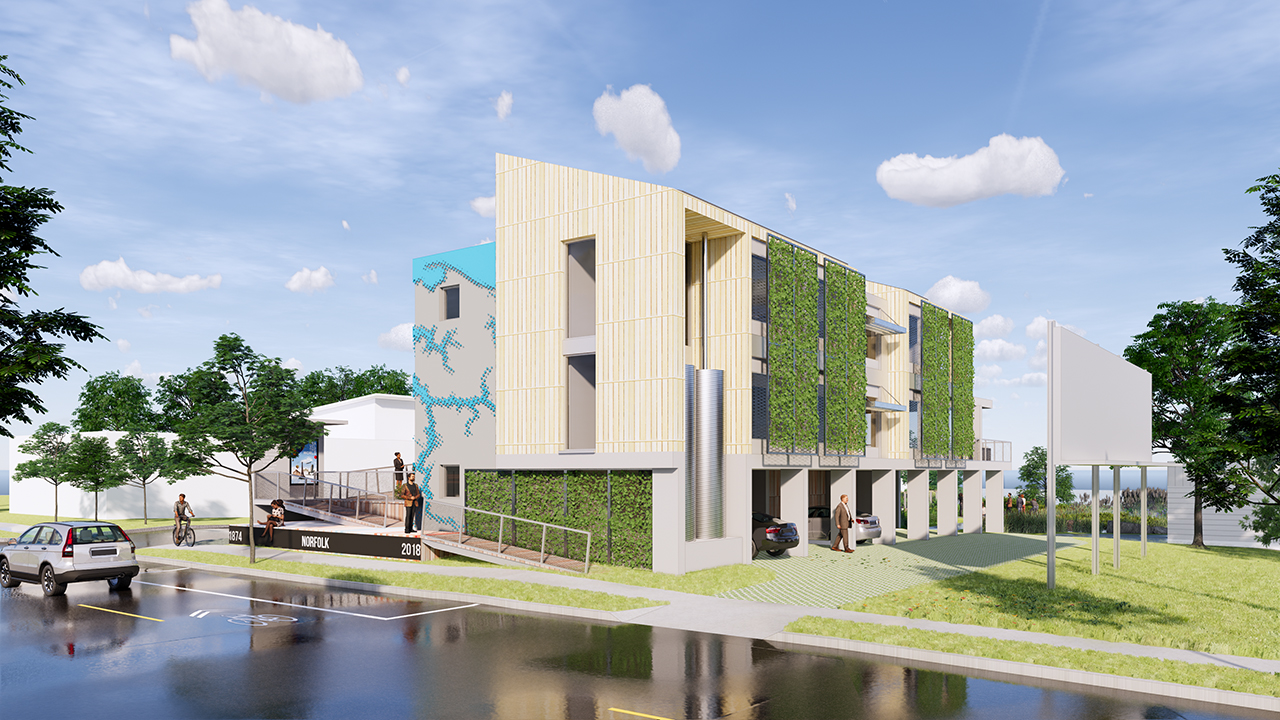
In addition to offices, meeting and education/recreation spaces, ERP's Resilience Lab will also feature:
— A floating dock that will cater to local university/college students and other partner organizations conducting environmental research
— Amphibious storage buildings with floating foundations
— A circular boardwalk that will allow visitors to walk above the wetlands and living coastline
— An elevated main building with ground-level flood proofing
— A 40kW roof-mounted solar array to supply power to the building
— Site paving that is designed to absorb water from rain and floods
— Green walls that provide passive shading and reduce energy usage
— Bike racks and electric vehicle charging stations
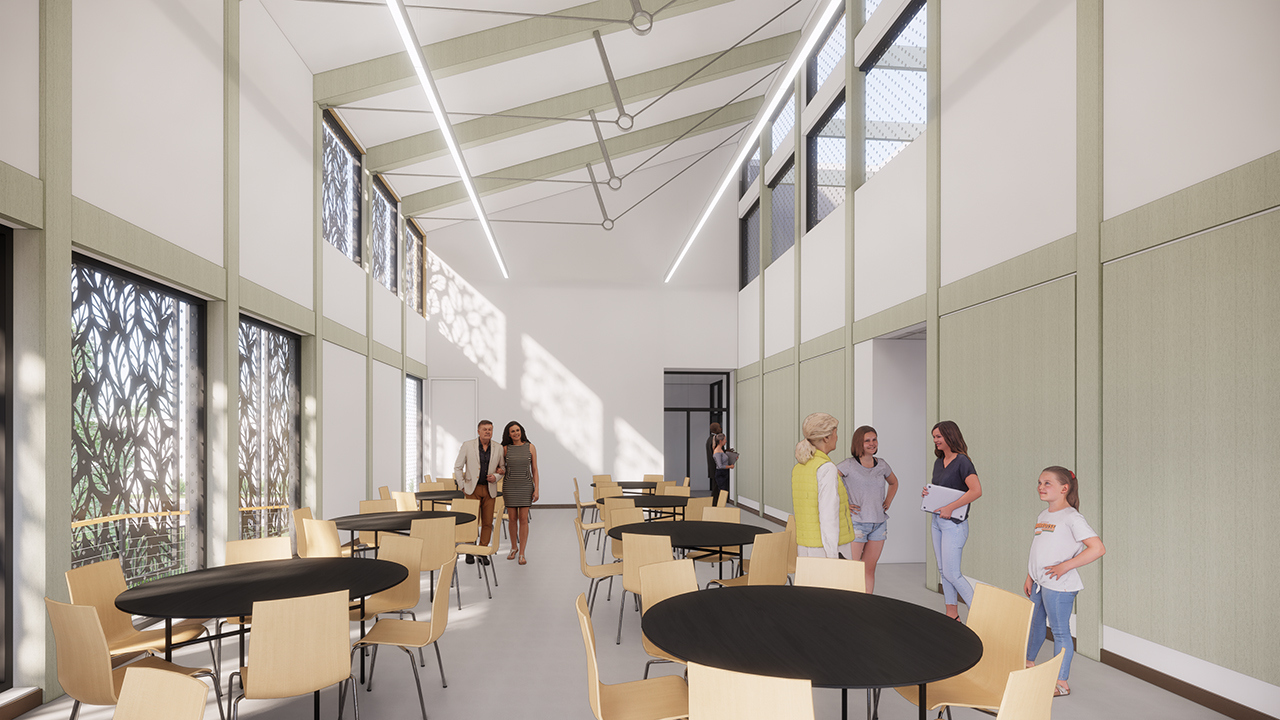
The building will be engineered to withstand flooding and heavy rain events with the potential to serve as a refuge during catastrophic storm events. All primary functions are located above ground with on-site parking and outdoor classrooms located underneath the building. The main floor will house staff work areas and a series of public spaces meant to welcome volunteers and guests for events.
ERP’s Resilience Lab will be the first light commercial Earthcraft Gold Certified building in Virginia. It will be built responsibly so when the facility has run its lifespan it can be easily deconstructed instead of abandoned.
In addition to WPA, the Skanska Integrated Solutions team will provide owner’s representative services and oversee the design and construction of the facility.
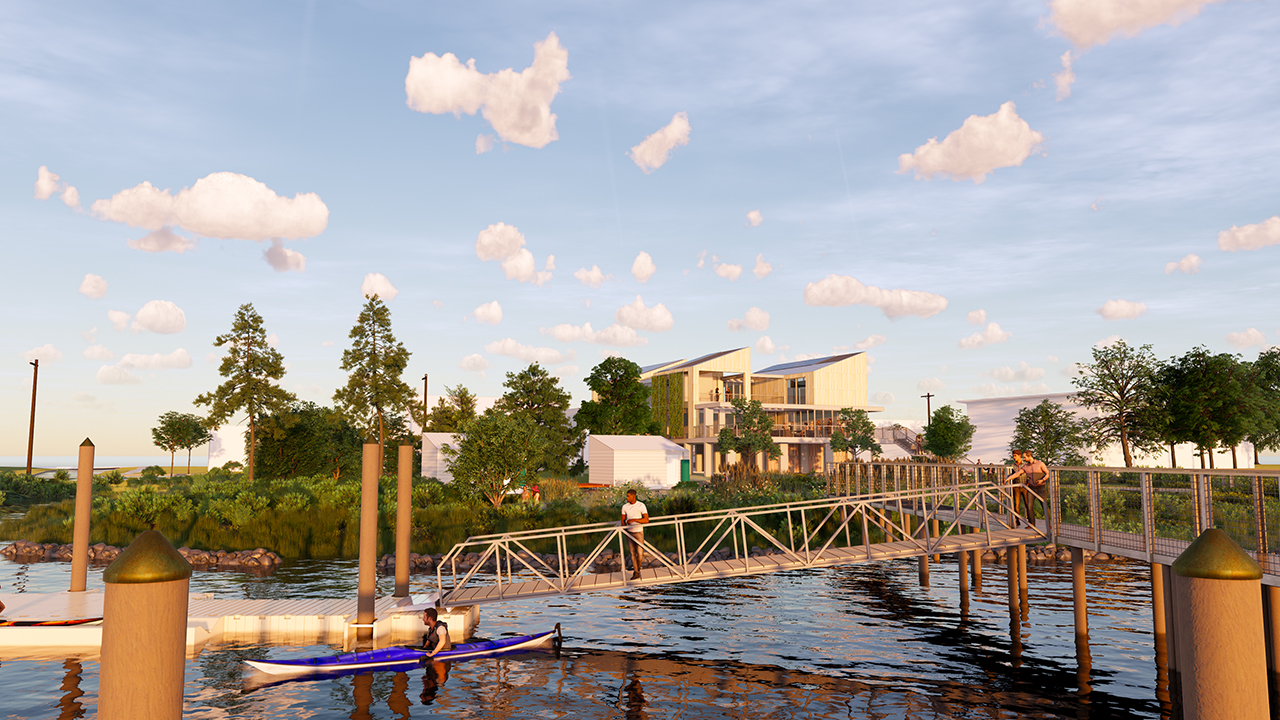
Related Stories
Products and Materials | Jan 18, 2023
6 innovative products for multifamily developments
Here are six innovative products for various multifamily developments, including a condominium-wide smart electrical system, heavy-duty aluminum doors, and prefabricated panels.
Adaptive Reuse | Jan 12, 2023
Invest in existing buildings for your university
According to Nick Sillies of GBBN, students are increasingly asking: "How sustainable is your institution?" Reusing existing buildings may help answer that.
Sponsored | Resiliency | Dec 14, 2022
Flood protection: What building owners need to know to protect their properties
This course from Walter P Moore examines numerous flood protection approaches and building owner needs before delving into the flood protection process. Determining the flood resilience of a property can provide a good understanding of risk associated costs.
Green | Dec 9, 2022
Reaching carbon neutrality in building portfolios ranks high for organizations
Reaching carbon neutrality with their building portfolios ranks high in importance among sustainability goals for organizations responding to a Honeywell/Reuters survey of senior executives at 187 large, multinational corporations. Nearly nine in 10 respondents (87%) say that achieving carbon neutrality in their building portfolio is either extremely (58%) or somewhat (29%) important in relation to their overall ESG goals. Only 4% of respondents called it unimportant.
Green | Dec 9, 2022
Newly formed Net Zero Built Environment Council aims to decarbonize the built world
Global management consulting firm McKinsey recently launched the Net Zero Built Environment Council, a cross-sector coalition of industry stakeholders aiming to decarbonize the built world. The council’s chief goal is to collaboratively create new pathways to cut greenhouse gas emissions from buildings.
Adaptive Reuse | Dec 9, 2022
What's old is new: Why you should consider adaptive reuse
While new construction allows for incredible levels of customization, there’s no denying that new buildings can have adverse impacts on the climate, budgets, schedules and even the cultural and historic fabrics of communities.
75 Top Building Products | Nov 30, 2022
75 top building products for 2022
Each year, the Building Design+Construction editorial team evaluates the vast universe of new and updated products, materials, and systems for the U.S. building design and construction market. The best-of-the-best products make up our annual 75 Top Products report.
Seismic Design | Nov 16, 2022
SPC-4D: 7 reasons California hospital building owners should act now to meet seismic compliance
Seismic compliance with the applicable California building codes is onerous and disruptive for building owners, especially for a building in the heavily regulated sector of healthcare. Owners of older buildings that house acute care services have a big deadline on the horizon—Jan. 1, 2030, the cutoff date to upgrade their buildings to SPC-4D.
Energy-Efficient Design | Nov 14, 2022
How to achieve net zero energy in five steps
Martine Dion and Ethan Seaman share net zero energy best practices with owners and developers.
Resiliency | Nov 8, 2022
Oregon wildfire risk law prompts extensive backlash from property owners
A bipartisan bill aimed at protecting property owners from wildfires that was passed by the Oregon legislature has prompted a strong backlash.


